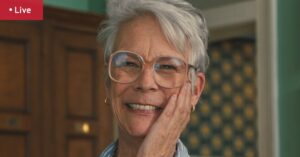
Using a nasal mask instead of a traditional face mask to support very premature babies at birth can significantly reduce the need for rescue breathing and escalation of care, according to a groundbreaking trial led by researchers at Monash University’s School of Clinical Sciences at Monash Health. The study, conducted in collaboration with Hudson Institute of Medical Research and Monash Children’s Hospital, was published today in The Lancet Child & Adolescent Health.
The FONDUE trial, which stands for “Face mask versus nasal mask device use for initial resuscitation in extremely and very premature infants,” enrolled 151 newborns born between 23 and 31 weeks’ gestation at Monash Children’s Hospital. The findings reveal that providing initial breathing support through a nasal mask significantly reduces the need for rescue breathing interventions.
Revolutionizing Preterm Infant Care
Nearly all babies born more than two months early require immediate breathing assistance after birth. These fragile newborns often take a first breath or cry but may stop breathing, necessitating urgent intervention from medical professionals to ensure oxygen reaches their developing lungs. This intervention, known as positive pressure ventilation or “rescue breathing,” is crucial but can expose preterm lungs to high inflation pressures, potentially causing damage. If face mask-assisted rescue breathing fails, clinicians may have to resort to emergency intubation.
Dr. Douglas Blank, lead author and researcher at Monash University’s School of Clinical Sciences and Hudson Institute of Medical Research, emphasized the trial’s success:
“In our trial, we reduced the need for rescue breathing from 58 percent to 39 percent by using a nasal mask to provide initial help breathing instead of the traditional face mask.”
Immediate Clinical Implications
The intervention was administered in the delivery room during the first 20 minutes of life, prior to the infants’ admission to the neonatal intensive care unit (NICU). Encouraging spontaneous breathing efforts in extremely preterm babies could also lead to improved long-term outcomes. Associate Professor Calum Roberts, a senior author from the School of Clinical Sciences at Monash Health, highlighted the significance of these findings for babies born before 28 weeks.
“Initial use of a nasal mask doubled the likelihood of successful breathing support without escalation in extremely preterm babies,” Associate Professor Roberts stated. “Avoiding high-pressure ventilation and intubation at birth could have lasting benefits for their fragile lungs and brains.”
National and Global Impact
With over 25,000 babies born preterm each year in Australia, the study’s findings could swiftly alter delivery room practices nationwide. Funded by the National Health and Medical Research Council (NHMRC) and the Jack Brockhoff Foundation, the research suggests a simple yet effective change that can be implemented globally.
Dr. Blank expressed optimism about the broader implications:
“Encouraging spontaneous breathing from the first moments of life is a simple, low-cost change that can be adopted worldwide. Our hope is that these results improve outcomes for the most vulnerable newborns.”
Looking Forward
The study’s results have the potential to transform neonatal care practices, offering a straightforward intervention that could substantially improve the survival and health outcomes of preterm infants. As healthcare providers consider integrating nasal masks into standard practice, further research may explore the long-term benefits and potential for widespread adoption.
For more information on the study, titled “Face mask versus nasal mask device use for initial resuscitation in extremely and very premature infants (FONDUE),” and to contact the institutions involved, please refer to the media enquiries section below.
Media Enquiries
- Helena Powell, Media Advisor (medical), Monash University
M: +61 474 444 171
E: [email protected] - General Media Enquiries
Monash Media
T: +61 (0) 3 9903 4840
E: [email protected]
For more Monash media stories, visit our news and events site.







